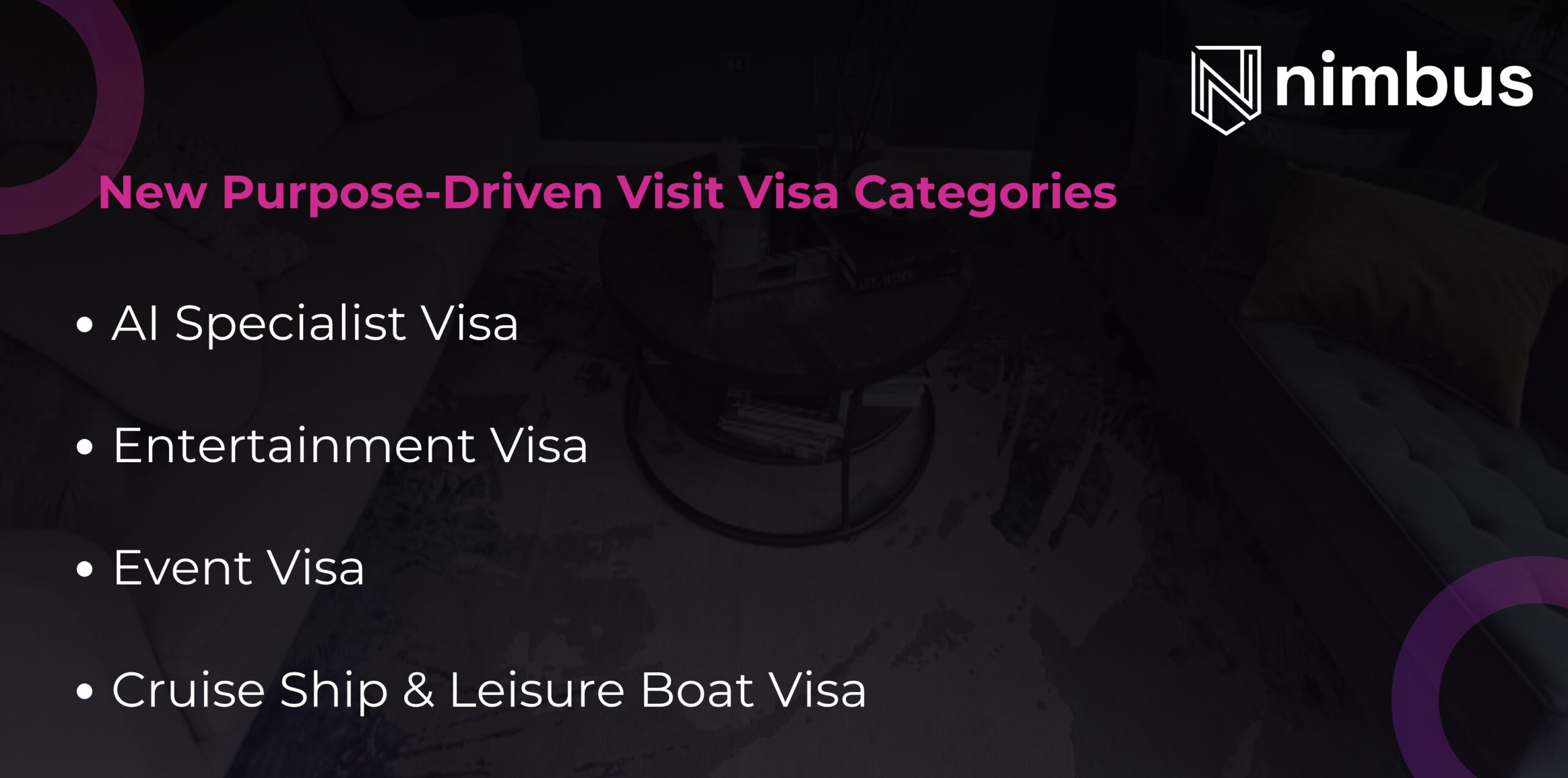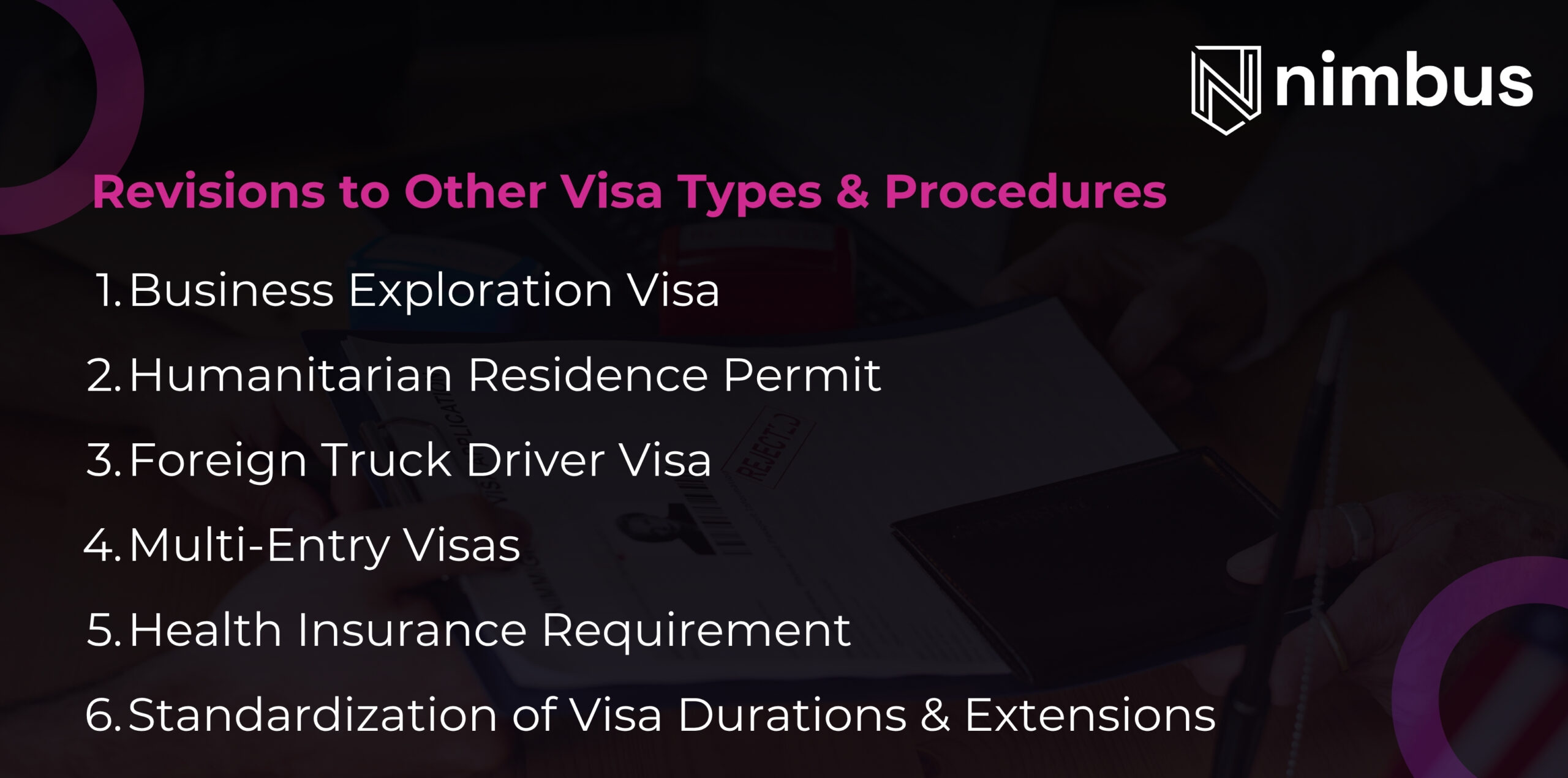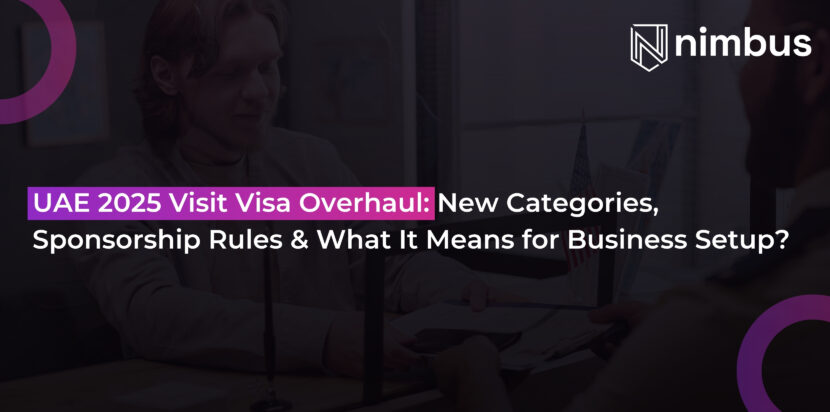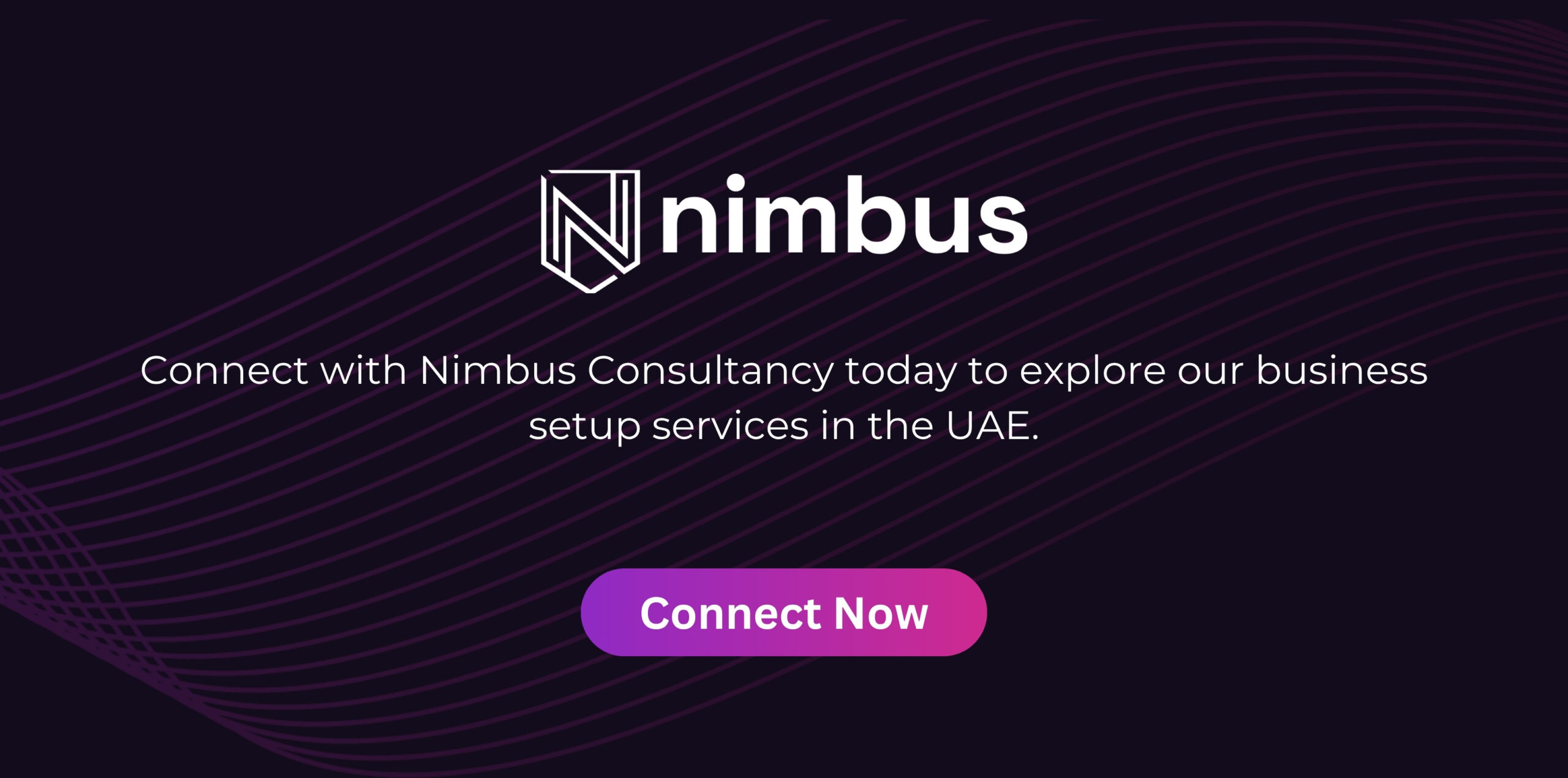In September 2025, the UAE’s immigration landscape underwent a major shift. The Federal Authority for Identity, Citizenship, Customs and Port Security (ICP) introduced new purpose-driven visit visa categories and income-based sponsorship rules.
These administrative updates reflect the UAE’s evolving strategy to use visa policy as a lever for economic diversification, talent attraction, tourism enhancement, and sectoral investment.
For entrepreneurs and companies exploring business setup in the UAE, it is critical to understand how these visa reforms may influence talent mobility, project planning, and partnership strategies.
In this post, we break down the new visit visa categories, updated sponsorship rules, and their implications for business and investment in 2025.
1. New Purpose-Driven Visit Visa Categories
Traditionally, short-term UAE visit visas were generic and one-size-fits-all. The 2025 overhaul introduces four new categories tailored to specific sectors. Each connects visa access to economic priorities and industry demand.

- AI Specialist Visa: For professionals in AI, data science, machine learning, and related tech fields. Requires sponsorship from a licensed technology company or entity. Can be issued for either single or multiple entries depending on the sponsor’s request.
- Entertainment Visa: For performers, artists, cultural practitioners, and creative professionals involved in entertainment activities. Event organizers or cultural institutions typically act as the sponsor, providing documentation about the scheduled activity.
- Event Visa: For participants (speakers, exhibitors, delegates) in conferences, exhibitions, sports, cultural festivals, and similar events. The hosting organization provides a formal invitation and outlines the details of the event.
- Cruise Ship & Leisure Boat Visa: For tourists arriving via cruise ships or leisure vessels. Requires a pre-planned itinerary and sponsorship from a licensed cruise or leisure operator, allowing multiple entries compatible with the cruise schedule.
These new visas mark a departure from generic visit permits, signaling that the UAE wants to attract visitors whose presence contributes to specific economic and cultural sectors rather than purely tourism.
2. Income-Based Sponsorship Rules for Family and Friends
Alongside these sectoral visa categories, the UAE also implemented income-based criteria for residents wishing to sponsor non–resident family or friends on visit visas. The new rules aim to ensure visitor support capacity and clarify sponsorship eligibility. The criteria are:
- First-degree relatives (spouse, children, parents): The sponsor must earn at least AED 4,000/month.
- Second-degree relatives (siblings, grandparents, grandchildren): Sponsorship requires a salary of AED 8,000/month.
- Third-degree relatives (uncles, aunts, cousins): Also AED 8,000/month.
- Friends (non-relatives): The sponsor must earn at least AED 15,000/month.
Sponsors need to submit proof of kinship documentation, valid passports, and a return ticket for the visitor. These sponsorship rules aim to balance openness to visitor access with financial accountability.
3. Revisions to Other Visa Types & Procedures
The 2025 reform also includes updates to existing visa categories and processes to streamline entry and residency procedures:

- Business Exploration Visa: Now requires demonstration of financial solvency, business models, or proof of professional engagement. Applicants must submit bank statements or investment documents to show serious intent.
- Humanitarian Residence Permit: New permit category valid for one year (renewable) that does not require a sponsor. It is offered to widows, divorced women, or applicants from areas affected by conflict or hardship.
- Foreign Truck Driver Visa: Revised to require sponsorship by licensed transport firms and evidence of health insurance coverage and financial guarantees.
- Multi-Entry Visas: Expanded availability for frequent travelers, making movement simpler for business visitors and repeat tourists.
- Health Insurance Requirement: All visa applicants must now provide proof of medical coverage as part of the application process.
- Standardization of Visa Durations & Extensions: Six permitted stay types have been defined, each with clear rules for extension to reduce ambiguity for applicants and authorities.
4. How These Visa Changes Affect Business Setup in the UAE?
These visa reforms are particularly relevant for firms and investors navigating company formation in the UAE, whether through freezone setup or UAE mainland setup. Here’s how.
- Talent attraction and mobility: The AI Specialist and Entertainment visas help companies draw in high-value professionals without needing to sponsor full residence visas immediately. A firm structured in a Free Zone or mainland can use these visas to bring in consultants or creatives for short-term projects.
- Event and project flexibility: The Event visa makes it easier for conference organizers, exhibitions, and corporate launches to bring in overseas speakers, performers, or staff for discrete assignments.
- Tourism and hospitality models: For companies planning to build hospitality, cruise, or experiential tourism offerings, the Cruise & Leisure visa streamlines access for visitors arriving via marine routes.
- Cost and compliance clarity: The income-based sponsorship system sets clear parameters to avoid overcommitments or visa rejections when sponsoring families, employees, or guests.
- Bridging the gap before residency: In UAE freezone setup, many companies first attract talent on visit or specialist visas before converting them into full employee visas. The purpose-driven visit visas give flexibility during transition.
- Regulatory alignment: Mainland companies preparing for UAE mainland setup must ensure their corporate and operational models align with the sectoral focus implied by these visa categories. The resonance between visa sectors and industry orientation may influence partnerships and licensing decisions.
5. Strategic Implications & Outlook
These reforms underscore a broader transformation: the UAE is using immigration as a strategic lever, not just a procedural necessity. By customizing short-term visa paths around target sectors, it aims to draw in useful talent, cultural content, tourism, and global event participants.
They complement existing incentives offered in UAE free zones and mainland jurisdictions. As the visa framework evolves, business setup services in the UAE, including advisory firms, licensing agencies, and immigration consultants, must adapt their models to include visa planning as an integral part of company formation.
If you are pursuing business setup in the UAE, these visa updates represent both opportunities and guardrails. Entities that leverage them smartly by integrating legal structure and sector alignment are likely to sustain and grow over time.



